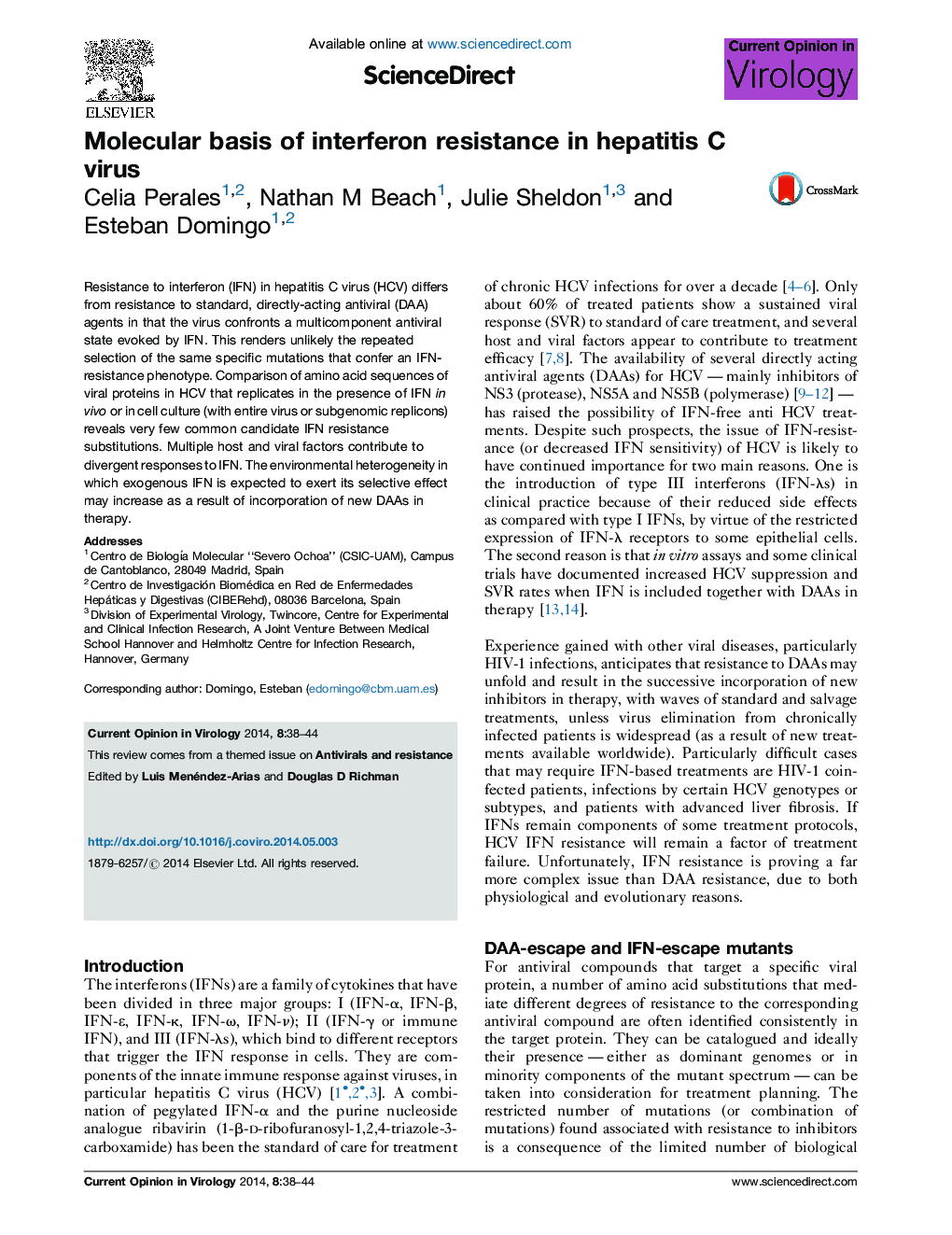| Article ID | Journal | Published Year | Pages | File Type |
|---|---|---|---|---|
| 5806764 | Current Opinion in Virology | 2014 | 7 Pages |
Abstract
Resistance to interferon (IFN) in hepatitis C virus (HCV) differs from resistance to standard, directly-acting antiviral (DAA) agents in that the virus confronts a multicomponent antiviral state evoked by IFN. This renders unlikely the repeated selection of the same specific mutations that confer an IFN-resistance phenotype. Comparison of amino acid sequences of viral proteins in HCV that replicates in the presence of IFN in vivo or in cell culture (with entire virus or subgenomic replicons) reveals very few common candidate IFN resistance substitutions. Multiple host and viral factors contribute to divergent responses to IFN. The environmental heterogeneity in which exogenous IFN is expected to exert its selective effect may increase as a result of incorporation of new DAAs in therapy.
Related Topics
Life Sciences
Immunology and Microbiology
Virology
Authors
Celia Perales, Nathan M Beach, Julie Sheldon, Esteban Domingo,
